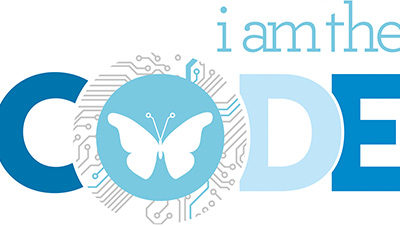At present, we may be staring at a crisis as automation is threatening millions of jobs worldwide. Some reports have predicted that by 2030, millions of workers will be rendered redundant all thanks to technology.
When technology was first introduced, jobs were created. The introduction of the computer, for instance, led to the creation of new jobs. We cheered at this innovation and wished it had come earlier. We were happy to see technology redefining how various roles were conducted. Today, the tables have turned; the same technology is taking our jobs unapologetically. It has turned against us. If some people do not switch jobs now or retrain for new careers, they may not fit in the job market in 10 years.
In Kenya, automation has led to job losses. The banking sector is perhaps the worst hit. The fact that you can make cash withdrawals and deposits over the ATM means that your favorite cashier is no longer of much help. Today, I can download a banking app and decide to conduct a majority of my transactions over the phone. Also, if there is a banking agent near me, the chip and PIN card machine will ensure that I carry out my banking hustle free. The best part yet? There are no queues. Much convenience comes with banking technology but at the expense of someone’s job. I really don’t know how to feel about that. It is bitter-sweet.
Amazon Go Store is the example of how technology can render some jobs useless. This retail store operates without cashiers.
Samantha the sex doll and Sophia the AI-citizen are two examples of how robots could take the place of women in society. Samantha is a virtually realistic sex doll and it has men excited. There is a lot of buzz about their role as sex objects. In countries where prostitution is legal, Samantha is a threat to their profession and trade. Some men are even putting sex workers on notice: they better step up their game or they risk being replaced. Sophia, on the other hand, was granted a Saudi Arabia citizenship and before long, she was advocating for women’s rights. As expected, some activists were not impressed that she had more rights than millions of Saudi women.
Robotics and automation are killing jobs. This is a complex problem that requires a well-thought our solution. Various industries and governments need to come together to discuss the threat facing everyday working lives. Technology does not have to have a purely destructive force. If it can create new jobs, redefine existing one, and give workers the chance to retrain and join the workforce instead of killing jobs completely, that would be great.
At present, big companies are investing heavily in cutting-edge technology as long as it saves operational costs in the long term. Stemming job loss can only be achieved if the manufacturers and other stakeholders take a long hard look at the impact of automation in creating new jobs.
However, not everyone thinks that automation has led to negative impacts. Some economists have stated that technology has created more jobs than it has rendered obsolete. This group argues that the relationship between jobs and the rise of technology is a positive one contrary to popular opinion. To them, technology has led to a loss of jobs that no one would want to hold on to. Like jobs that require human muscle power, hard, or dangerous jobs. They argue that technology has been a great employment creation innovation. It would be great is these skeptics could give us a ratio of jobs to be lost versus those that wil be created. This will paint a clearer picture.
Automation to widen gender inequality
This is a likely outcome.
Inequality in the tech industry is already a known fact. This was evident during the recently concluded Consumer Electronics Show. Efforts to bridge this gap have been ongoing for some time now. Desired results are yet to be achieved. The persistent job loss due to automation is among issues that stand in the way.
One of the main reasons for this is that women are likely to be assigned low-skill duties that can be easily automated. Robots are expected to phase out low-skill jobs and this will mean that high-skill jobs will replace them. Also, low pay jobs are likely to be automated and since women and minority groups often earn less, they will be negatively affected by this.
Presently, more jobs in tech lean on one gender. For example, women dominate most secretarial and administrative jobs. If automation is to take over these duties, more women would be rendered jobless.
Technology may have done a lot in revolutionizing how we do things but failed to wipe away inequalities. Women are set to lose out unless more is done to remove barriers to the full participation of women in technology and other sectors.
Share your thoughts on automation. Do you think that it has created more jobs than it has rendered useless?





Leave a Reply